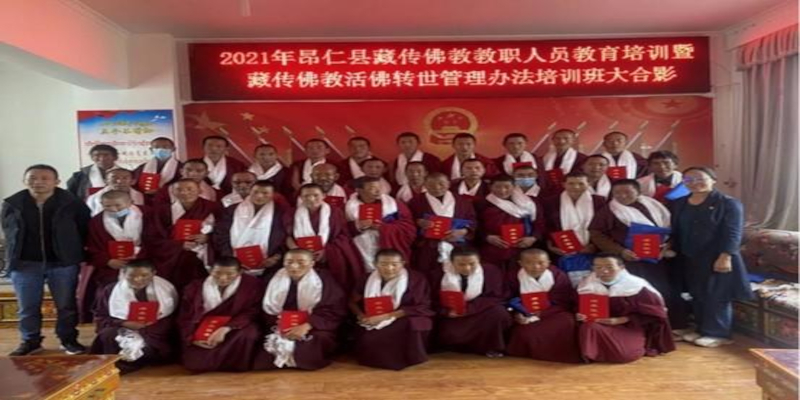Dharamshala, 18th December: Why would Chinese Authorities be Interested in Tibetan Buddhist incarnations? Well, to sum in one word, Politics. In late November, a senior local Chinese Communist Party official visited three townships in Sog, a county in the Tibet Autonomous Region known for its religious resistance. His purpose is to persuade local Tibetan officials to support government policy on Tibetan Buddhist incarnations recognition.
According to the state media, these meetings drew almost 120 township authorities, personnel of monastery management committees, village-based cadres, village officials, local police, [and] schoolteachers. Participants Unanimously stated their willingness to respect laws and regulations involving Tibetan Buddhist incarnation concerns.
Why China is Pushing its own Dalai Lama?
In Buddhist-dominated communities, the Dalai Lama is the most powerful figure, advocating Buddhist teachings all across the world. As a result, the Dalai Lama’s succession would be extremely important to the Tibetan diaspora around the world. He also stated that his reincarnation would most certainly take place in India if he died outside of Tibet.
Since 2007, Chinese authorities have imposed restrictions on the recognition of reincarnate lamas, which include the majority of Tibetan Buddhist religious leaders. These laws state that reincarnations must be born within China’s boundaries and cannot be recognized without state consent. The “Golden Urn,” an 18th-century Chinese lottery mechanism that has hardly been employed by Tibetans until 2007, when the party ordered it as the only legitimate way to select top-ranking lamas, must be used to select high-ranking reincarnation.
Chinese officials have scheduled meetings in recent years in which top monks will be asked to “examine” these programs and pledge their support. Since 2018, all monastics, especially those with teaching or administrative responsibilities, have been obliged to satisfy the “Four Standards,” which include “political reliability” and “reliability in critical circumstances.” Both are thought to entail backing the Chinese government’s pick for the future Dalai Lama, as well as any other reincarnate lama.
These demands are now being implemented more generally, as evidenced by recent local assemblies such as those in Sog county. Given China’s state-of-the-art preventive policing in Tibet to “keep stability,” monk and ordinary believers will be unable to express their true feelings regarding the authorities’ choice of Tibetan religious leaders.







Leave a Reply